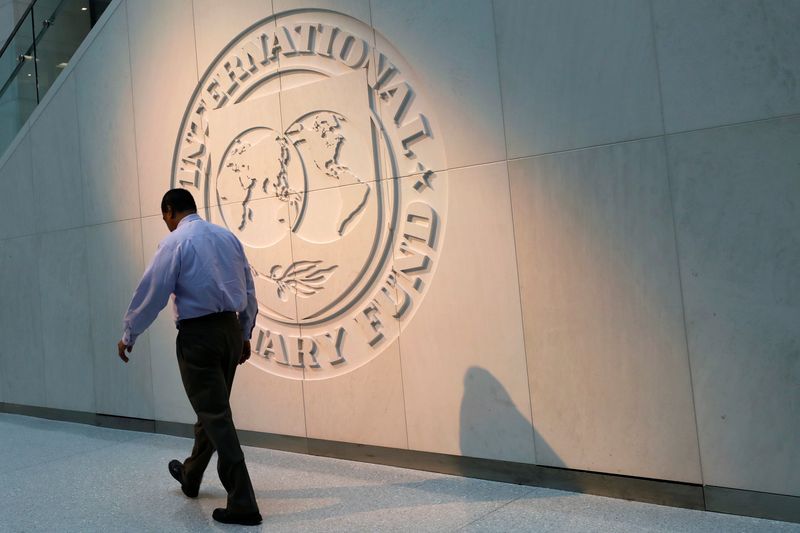By Rodrigo Campos and David Lawder
(Reuters) -The International Monetary Fund on Friday approved measures to reduce its members’ borrowing costs by about $1.2 billion annually, the fund’s Managing Director Kristalina Georgieva said.
“The approved measures will lower IMF borrowing costs for members by 36%, or about $1.2 billion annually,” Georgieva said in a statement. “The expected number of countries subject to surcharges in fiscal year 2026 will fall from 20 to 13.”
This year, the IMF decided to review its policy on charges and surcharges for the first time since 2016, as higher interest rates globally had pushed borrowing costs higher.
The fund charges regular interest, plus surcharges for loans above a certain threshold or duration, and commitment fees for precautionary arrangements.
The IMF said the charge above the fund’s interest rate will be lowered, while the amount and duration thresholds will rise, as will the threshold for commitment fees.
“While substantially lowered, charges and surcharges remain an essential part of the IMF’s cooperative lending and risk management framework, where all members contribute and all can benefit from support when needed,” Georgieva said.
The changes will take effect on Nov. 1.

The five countries paying the highest surcharges are Ukraine, Egypt, Argentina, Ecuador and Pakistan according to research from Boston University’s Global Development Policy Center.
Friday’s decision will likely disappoint academics, non-profit groups and other economists, who have called for a full cancellation of IMF surcharges, which they argue place extra burdens on borrowing countries at a time when they are in dire economic circumstances and counteract the impact of IMF lending.

